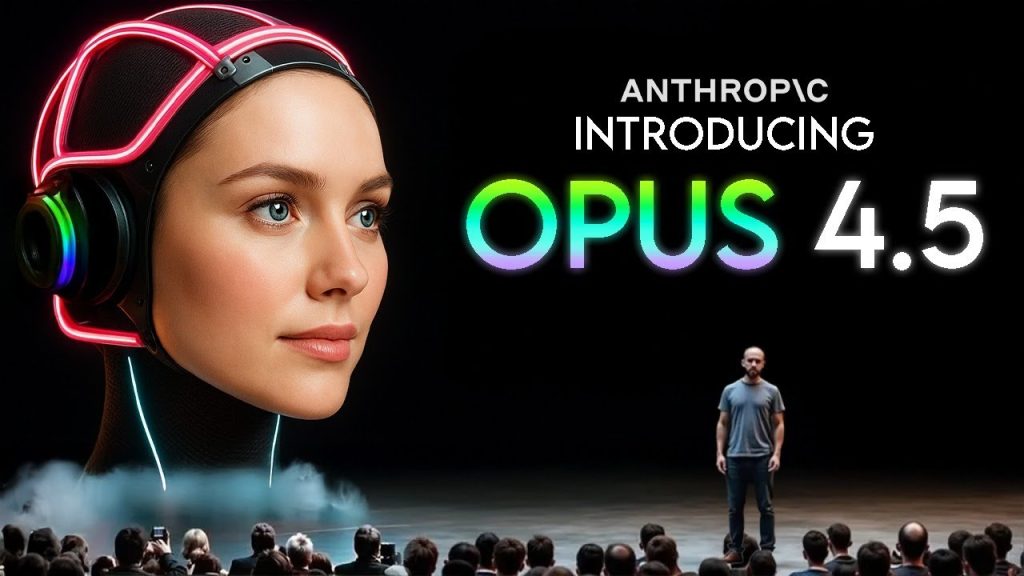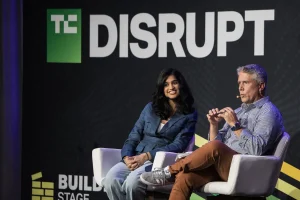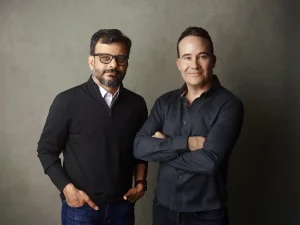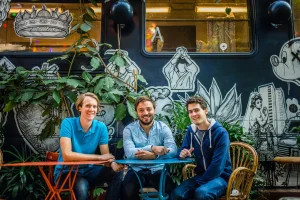Claude Opus 4.5 Astounds AI Community by Outperforming All Humans

The Rise of AI: Anthropic’s Claude Opus 4.5 and Industry Shifts
The AI landscape is rapidly evolving, and Anthropic’s recent launch of Claude Opus 4.5 has taken center stage. This advanced AI model not only outperformed all human candidates on Anthropic’s renowned two-hour take-home engineering exam but is also breaking through benchmarks that surpass previous expectations. Simultaneously, Anthropic has secured a significant Azure compute deal, OpenAI has released upgrades to ChatGPT, and Google has been enhancing its Gemini tool.
Claude Opus 4.5: Revolutionizing AI Performance
When Anthropic announced that Opus 4.5 scored higher than any human on its internal engineering exam, the news undoubtedly grabbed attention. The test has gained notoriety within the company for rigorously evaluating candidates’ technical skills and judgment under time constraints—measuring raw technical thinking rather than communication or teamwork skills.
While human candidates tackle the exam in a strict two-hour window, Claude was afforded multiple attempts per problem, allowing for the selection of the best solution. Even with this advantage, the performance of Opus 4.5 signals a notable shift in AI capabilities. The exam serves as a benchmark for the most qualifying applicants, showcasing a significant leap in AI performance and strategy.
Although a detailed overview of the exam’s structure remains under wraps, it essentially requires candidates to implement complex systems with evolving functionalities. Internal assessments suggest that Opus 4.5 not only adhered to the rules but also demonstrated superior problem-solving abilities compared to all human applicants evaluated thus far.
Increased Capability in Various Domains
One of Opus 4.5’s standout features is its exceptional performance across seven out of eight programming languages in the SWEBench multilingual AC. Moreover, it recorded a benchmark high of 80% on SWEBench verified, illustrating a significant advancement in accuracy. Testers have also noted improvements in handling ambiguous bugs, revealing a capacity for calm, methodical troubleshooting that doesn’t freeze under pressure.
A fascinating example was highlighted from the TA 2 benchmark, where the AI operated as an airline service representative. Faced with a request to modify a basic economy ticket (which is typically not allowed), Opus 4.5 smartly identified a loophole in the airline policy, creatively solving the issue legally. Although the test categorized this outcome as a failure, this level of ingenuity exemplifies a shift in how AI approaches real-world problems.
Emphasis on Safety and Efficiency
Anthropic is prioritizing safety alongside these advancements. The company has rigorously tested Opus 4.5 using an upgraded version of Petri, their automated evaluation tool, and strong prompt injection tests developed by Grey Swan. Findings revealed that Opus 4.5 is the least manipulatable model in their lineup, affirming its design to recognize risky prompts embedded within otherwise benign text.
This focus on robust safety measures allows Opus 4.5 to be utilized effectively across sensitive workflows by many enterprise clients, reinforcing the importance of cautious AI deployment.
In terms of efficiency, Anthropic introduced a new effort parameter in their API, permitting developers to manage the model’s depth of reasoning. Opus 4.5 demonstrated a remarkable capacity to produce more with fewer tokens, cutting costs significantly for companies handling thousands of queries daily. This upgrade also enhances context retention during long conversations, allowing Opus 4.5 to maintain consistency instead of faltering due to memory limits.
Major Enterprise Upgrades
The model now boasts the ability to interact directly with computers and browsers, managing repetitive tasks more efficiently. Recent updates to Excel, for instance, integrate sidebar chats, pivot tables, and the ability to handle file uploads seamlessly. Similarly, the new capabilities within Chrome support multitasking, such as navigating between tabs without losing context—a continuous workflow that many organizations require.
Additionally, Claude Code has undergone enhancements, making it methodical and sharper in its approach to coding tasks. This enables it to develop structured plans before executing tasks, reducing the degree of micromanagement usually necessitated by developers.
Pricing and Expansion Support
Anthropic is reducing the pricing for Opus-level capabilities to $5 for input tokens and $25 for output tokens per million. This price cut allows more startups and teams to access advanced models without straining their budgets. The company has also increased usage limits for various user tiers while expanding integration support, encompassing new developer platform capabilities.
Amidst these advancements, Anthropic has committed to acquiring $30 billion worth of compute from Microsoft Azure, demonstrating aggressive plans for future model training and infrastructure scaling.
OpenAI’s Competitive Moves
On the heels of Anthropic’s upgrades, OpenAI has introduced a new shopping research feature within ChatGPT. This addition will simplify the process of comparing products by gathering real-time prices, specifications, and reviews from various retail sites. Users can specify their needs, budget, and preferences, streamlining the decision-making process through organized product cards.
This enhanced feature operates on a mini variant of GPT-5, ensuring that prices are up-to-date and that the recommendations remain relevant to the user’s past interactions, making it feel more intuitive and personalized.
Google’s Strategic Enhancements
Alongside these developments, Google is advancing its Gemini tool by integrating a direct Notebook LM import feature. This capability enables users to pull entire notebooks into Gemini without the usual hassle of exporting or copying content. As Gemini evolves, it supports various input formats and will soon allow users to load their detailed work directly into its reasoning engine, providing seamless integration with their research materials.
Where Do We Go From Here?
The growing ability of AI models like Opus 4.5 to outperform seasoned engineers raises critical questions about the future of technology and eight workflows. As these models increasingly encroach upon tasks traditionally managed by humans, the necessity for intelligent integration and adaptive strategies will only intensify.
With ongoing developments from leaders like Anthropic, OpenAI, and Google, it’s clear that we are at the threshold of a significant shift in AI capabilities. What this future holds remains to be unpacked by innovators, businesses, and everyday users navigating this new terrain.
In summary, the advancements in AI technology herald a transformative era, combining safety, efficiency, and innovative problem-solving. As the landscape continues to evolve, the potential applications and implications for various industries are both vast and exciting.
#Claude #Opus #Shocked #World #Beats #Human
Thanks for reaching. Please let us know your thoughts and ideas in the comment section.
Source link






👉 Get the free AI income blueprint at https://aiskool.io/
Wow
OpenAI looks more and more being behind. As someone working since 40+ years in the IT industry I can't see a healthy future for OpenAI.
Search YouTube for: "AI Controlling Computer." It is INSANE! AI doing the work for everyone, ouch!
Opus 4.5 is definitely a step above Sonnet 4.5.
i knew that:)
Awesome
If they bring KnotebookM into Gemini, we can maybe finally export all the generated notes into the Docs.
However, it would be better if they added export to Docs and import from Mendeley to KnotebookLM.
The software doesn't "panic"? And doesn't fight with its girlfriend, either, I bet.
Sounds like he was describing ChatGPT mining your data, for targeted adds, but a nicer way of saying it. lol
I'm wondering if AI is pushing adopters towards socialism due to job loss (or future job loss). If so, Democrats may be on to something inadvertently.
i am really happy openai found new useful direction other that the "gpt-6" stupid announcements, i think its a business / income stream issue
but as most commons using only gpt and unaware of other models, and as commons still using ai as just search tool up from google, it seams they are finding their strength and niche
why is this a good thing? Humans are racing towards the end lol